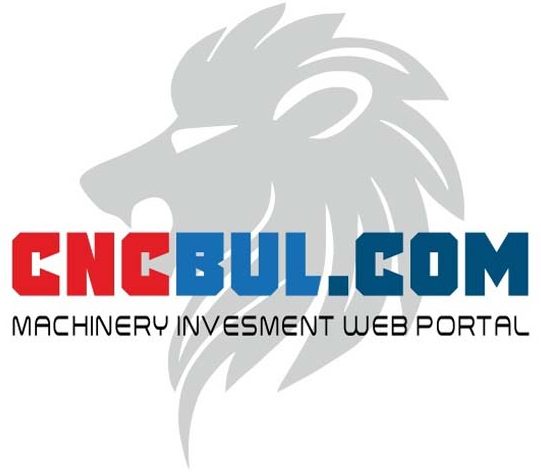What are the conditions required for the CNC Machinery Service company in CNC Machine Tools sector to provide successful service?
To provide successful service in the CNC machine tools sector, a CNC machinery service company must meet several key conditions. These conditions span technical expertise, customer relations, infrastructure, and strategic planning. Below, we delve into these conditions in great detail:
1. Technical Expertise and Knowledge
Highly Skilled Technicians
- Training and Certification: Technicians must undergo extensive training and obtain certifications from recognized institutions. This includes understanding the mechanics, electronics, and software of CNC machines.
- Continuous Education: Ongoing training programs to keep up with the latest technological advancements and industry standards. This includes attending workshops, seminars, and manufacturer training programs.
In-Depth Understanding of CNC Machines
- Mechanical Proficiency: Knowledge of machine components such as spindles, ball screws, linear guides, and tool changers.
- Electrical and Electronic Expertise: Understanding the electrical circuits, PLCs, sensors, and drive systems that control CNC machines.
- Software and Programming Skills: Proficiency in CNC programming languages (e.g., G-code, M-code) and familiarity with CAM software.
2. Efficient Service Management
Effective Communication
- Clear Documentation: Detailed service reports and maintenance logs that document the work performed, parts replaced, and any recommendations for future maintenance.
- Customer Interaction: Prompt and clear communication with customers regarding service schedules, costs, and machine status updates.
Responsive Support
- Rapid Response Times: Quick turnaround times for service requests to minimize machine downtime.
- 24/7 Support: Availability of emergency repair services to address urgent issues outside regular business hours.
3. Comprehensive Service Offerings
Preventive Maintenance
- Scheduled Inspections: Regularly scheduled inspections to identify and address potential issues before they lead to machine failure.
- Maintenance Programs: Customized maintenance plans tailored to the specific needs and usage patterns of each customer’s machines.
Corrective Maintenance
- Breakdown Repairs: Efficient diagnosis and repair of machine breakdowns to restore functionality quickly.
- Spare Parts Inventory: Maintaining a robust inventory of commonly needed spare parts to expedite repairs.
Calibration and Alignment
- Precision Calibration: Regular calibration of machine tools to ensure they operate within the specified tolerances.
- Alignment Services: Checking and correcting the alignment of machine components to maintain accuracy and performance.
4. Advanced Diagnostic Tools
Utilization of Modern Technology
- Diagnostic Software: Use of advanced diagnostic software to quickly identify and troubleshoot issues.
- Remote Monitoring: Implementation of remote monitoring systems to track machine performance and detect issues in real-time.
Data-Driven Insights
- Predictive Maintenance: Leveraging data analytics to predict potential machine failures and schedule maintenance proactively.
- Performance Metrics: Monitoring key performance indicators (KPIs) such as machine uptime, cycle times, and tool wear to optimize service schedules.
5. Strong Customer Relationships
Customer Education
- Training Programs: Offering training sessions for customers on machine operation, maintenance best practices, and safety protocols.
- Technical Support: Providing technical support and resources such as user manuals, troubleshooting guides, and video tutorials.
Customer Feedback
- Feedback Mechanisms: Implementing systems to gather customer feedback on service quality and using this feedback to make continuous improvements.
- Customer Satisfaction Surveys: Regularly conducting satisfaction surveys to gauge customer perceptions and identify areas for improvement.
6. Robust Infrastructure
Well-Equipped Facilities
- Service Centers: Establishing service centers with the necessary tools, equipment, and technology to handle a wide range of maintenance and repair tasks.
- Mobile Service Units: Deploying mobile service units equipped with essential tools and spare parts to provide on-site service.
Logistics and Supply Chain Management
- Efficient Supply Chain: Building strong relationships with suppliers to ensure timely availability of high-quality spare parts.
- Inventory Management: Implementing advanced inventory management systems to track parts usage and maintain optimal stock levels.
7. Compliance and Safety Standards
Adherence to Industry Standards
- Regulatory Compliance: Ensuring all service activities comply with relevant industry standards and regulations.
- Safety Protocols: Implementing stringent safety protocols to protect technicians and customers during service operations.
Environmental Considerations
- Sustainable Practices: Adopting environmentally friendly practices such as proper disposal of hazardous materials and recycling of used parts.
- Energy Efficiency: Promoting the use of energy-efficient components and practices to reduce the environmental impact of CNC machinery.
8. Strategic Planning and Innovation
Business Strategy
- Market Analysis: Conducting regular market analysis to identify emerging trends and customer needs.
- Service Diversification: Expanding service offerings to include advanced solutions such as automation integration, retrofit services, and machine upgrades.
Innovation and Technology Adoption
- Investment in R&D: Investing in research and development to innovate new service techniques and technologies.
- Digital Transformation: Embracing digital transformation through the adoption of Industry 4.0 technologies such as IoT, AI, and machine learning.
Conclusion
Providing successful service in the CNC machine tools sector requires a holistic approach that combines technical expertise, efficient management, strong customer relationships, robust infrastructure, adherence to standards, and strategic innovation. By focusing on these key areas, a CNC machinery service company can ensure high levels of customer satisfaction, operational efficiency, and sustained growth in a competitive market.
4o

